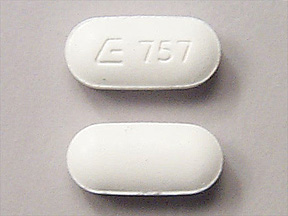
Sulfadiazine Coupons & Savings Card – Discount Prices from $567.03
My prescription
Edit
500MG, Sulfadiazine (180 Tablets)
Select pharmacy

CVS
$590.73
COUPON PRICE
Walgreens
$567.03
COUPON PRICE
Albertsons
$656.69
COUPON PRICE
Walmart
$2880.29
COUPON PRICESulfadiazine savings card
Show this card to your pharmacist
Walgreens
$567.03
BIN
ID
PCN
GRP
015995
LHKPU637262
GDC
DR33
Powered by
Related sulfa antibiotics prescriptions
More prescriptions for urinary tract infection
Related sulfa antibiotics prescriptions
More prescriptions for urinary tract infection
Sulfadiazine dosage forms
Dosage Quantity Price from Per unit 500MG 180 Tablets $656.69 $3.65 500MG 60 Tablets $223.90 $3.73 500MG 100 Tablets $368.16 $3.68
| Dosage | Quantity | Price from | Per unit |
|---|---|---|---|
| 500MG | 180 Tablets | $656.69 | $3.65 |
| 500MG | 60 Tablets | $223.90 | $3.73 |
| 500MG | 100 Tablets | $368.16 | $3.68 |
Sulfadiazine Warnings
The following information outlines crucial safety warnings and precautions associated with this medication. Please read carefully and consult with your healthcare provider if you have any concerns:
Severe Allergic Reactions: Individuals with a history of allergies to sulfa medications may also be allergic to sulfadiazine. It is important to discuss any previous allergies with your healthcare provider before starting this medication. Seek immediate medical attention if you experience breathing difficulties, or swelling of the face, lips, tongue, or throat.
Severe Skin Reactions: Although rare, some patients may develop serious skin reactions, including Stevens-Johnson Syndrome, while on sulfadiazine. Contact your healthcare provider immediately if you develop a new or severe rash, a rash with fever, unexplained blisters, or new sores in your mouth.
Low Blood Cell Counts: Sulfadiazine may, although infrequently, lead to serious blood issues such as low counts of red and white blood cells or platelets. This can increase the risk of infections, bleeding, and weakness. Report any unusual symptoms, such as a sore throat, fever, weakness, paleness, red spots on the skin, or persistent bleeding to your healthcare provider. This risk is heightened in individuals with glucose-6-phosphate dehydrogenase (G6PD) deficiency or those taking high doses of the medication.
Kidney Stones: There is a risk of developing kidney stones due to crystal formation in the urine while taking sulfadiazine. To reduce this risk, maintain proper hydration by drinking plenty of water throughout the day and with each dose. Contact your provider if you experience symptoms of kidney stones, such as lower abdominal or back pain or severe nausea.
Risk of Depression: Some individuals on sulfadiazine have reported experiencing depression and other central nervous system side effects, including hallucinations. Inform your provider immediately if you notice mood changes, loss of interest in activities, or if you experience auditory or visual hallucinations. A change in medication may be necessary.
Contraindications: This medication should not be used in the following situations due to significant health risks. Consult your healthcare provider if any of these apply to you:
- Allergy to sulfa medications.
- Children under 2 months old, except for specific cases of congenital toxoplasmosis under medical guidance.
- Late pregnancy.
- Breastfeeding.
Sulfadiazine Side Effects
Common side effects:
- nausea
- vomiting
- diarrhea
- stomach pain
- headache
- dizziness
- loss of appetite
Less common but important to monitor:
- feeling unsteady
- tingling in the hands and feet
- trouble sleeping
- ringing in the ears
Serious side effects:
- severe allergic reactions (hives, trouble breathing, swelling of the face, lips, tongue, or throat)
- severe skin reactions (rash, peeling, or blisters)
- seizures
- low blood cell counts (fever, chills, fatigue, paleness, or unusual bleeding)
- kidney issues (reduced urine output or dark urine)
- liver problems (stomach pain, yellowing of the skin or eyes, clay-colored stools)
- severe intestinal condition due to C. difficile (persistent diarrhea, abdominal pain, blood or mucus in the stool)
- oral thrush
- new vaginal yeast infection
Sulfadiazine Interactions
Sulfadiazine can interact with a variety of medications. Inform your doctor and pharmacist about all the medications and supplements you are taking, including prescribed, over-the-counter, vitamins, and herbal products. Here are some key interactions:
Methenamine: It is not recommended to use sulfadiazine with methenamine due to potential adverse effects. Your doctor may choose alternative treatments or adjust your medications.
Methotrexate and Porfimer: Combining these with sulfadiazine is generally not advised unless necessary. If prescribed together, your doctor might need to alter the dosage or frequency of one or both drugs.
Acetohexamide, Aminolevulinic Acid, Cyclosporine: These may increase the risk of side effects when used with sulfadiazine. However, if they are essential, your doctor may adjust treatment plans to manage the risks.
Always consult with your healthcare provider before starting or stopping any medication.
